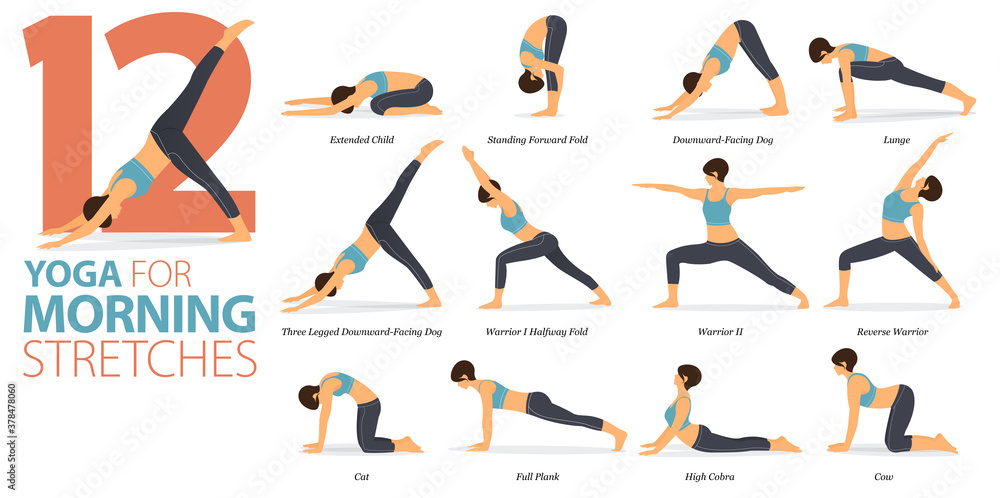
In this comprehensive guide, we'll dive deep into how to craft a morning routine that's realistic, sustainable, and effective. We'll cover everything from assessing your personal needs to incorporating key habits, avoiding common pitfalls, and tracking your progress. By the end, you'll have the tools to design a routine that sticks, helping you feel more productive and centered. Let's get started on transforming your mornings from chaotic to empowering.
Why a Morning Routine Matters More Than You Think
Before we jump into the how-to, let's talk about the why. Mornings are like the foundation of a house—if it's shaky, the whole structure feels unstable. Research shows that people with structured morning habits often report higher levels of happiness and productivity. It's not just about getting things done; it's about priming your mind and body for success.
Think about it: when you start your day with intention, you're less likely to fall into reactive mode, where emails and urgent tasks dictate your every move. Instead, you take control. A good routine can help regulate your sleep-wake cycle, reduce stress, and even support better physical health. For instance, incorporating simple activities like hydration or light movement can kickstart your metabolism and improve mental clarity.
But here's where many go wrong—they try to overhaul their entire life overnight. If you've ever attempted to wake up at 5 AM for a full gym session, meditation, and journaling only to burn out after a week, you know what I mean. The key is personalization and gradual implementation. In the sections ahead, we'll break it down step by step.
Step 1: Assess Your Current Habits and Needs
The first step in building a morning routine that works is self-reflection. You can't fix what you don't understand. Take a moment to evaluate your current mornings. Are you hitting the snooze button multiple times? Scrolling through your phone in bed? Rushing out the door without breakfast? Jot down your typical routine—or lack thereof—and identify what's working and what's not.
Consider your lifestyle factors. Are you a night owl or an early bird? Do you have kids, a demanding job, or health considerations? For example, if you're dealing with chronic fatigue, forcing an intense workout first thing might not be ideal. Instead, focus on gentle habits that energize without overwhelming.
Set clear goals. What do you want from your morning? More energy? Better focus? Time for self-care? Be specific. Maybe you aim to read for 10 minutes to spark creativity or prepare a healthy meal to fuel your body. Use tools like a journal to track these insights. This human-centered approach ensures your routine aligns with your real life, not some idealized version.
Remember, everyone's needs evolve. What works in your 20s might not suit your 40s. Reassess seasonally or during life changes, like starting a new job. This flexibility keeps your routine fresh and effective.
Step 2: Start Small and Build Gradually
One of the biggest mistakes in creating a morning routine is biting off more than you can chew. Rome wasn't built in a day, and neither is a transformative habit. Begin with one or two small changes that you can commit to consistently.
For starters, focus on wake-up time. If you're used to sleeping in until 8 AM, don't suddenly set your alarm for 5 AM. Shift it back by 15 minutes every few days until you reach your goal. Pair this with a wind-down routine the night before—dim lights, avoid screens—to make mornings easier.
Add micro-habits. Drink a glass of water upon waking to rehydrate after a night's sleep. Or spend two minutes stretching in bed to loosen up. These tiny actions create momentum without feeling daunting. Over time, layer in more elements as they become second nature.
Consistency is king. Aim for 21 days to form a habit, but be kind to yourself if you slip. Life happens—sick days, travel, or unexpected events. The goal is progress, not perfection. Track your streaks in a simple app or calendar to stay motivated.

Step 3: Incorporate Essential Elements for a Balanced Routine
Now that you've laid the groundwork, let's explore the core components of an effective morning routine. These aren't rigid rules but flexible building blocks. Mix and match based on what resonates with you.
Hydration and Nutrition: Fuel Your Body Right
Start with the basics: water and food. After hours of sleep, your body is dehydrated, so chug 16-20 ounces of water first thing. Add lemon for a vitamin C boost if you like.
For breakfast, opt for nutrient-dense options that sustain energy. Think protein-packed eggs with veggies, oatmeal with nuts and fruits, or a smoothie with greens and yogurt. Avoid sugary cereals that lead to crashes. Eating mindfully—sitting down without distractions—enhances digestion and sets a calm tone.
Movement: Get Your Blood Flowing
Physical activity doesn't have to mean an hour at the gym. Even 10-15 minutes of movement can invigorate you. Try yoga poses like child's pose or downward dog to stretch tight muscles. Or go for a brisk walk outside to soak in natural light, which regulates your circadian rhythm.
If you're into fitness, incorporate bodyweight exercises like push-ups or squats. The key is enjoyment—dance to your favorite playlist if that gets you moving. Regular movement improves mood through endorphin release and sharpens focus for the day ahead.
Mindfulness and Mental Prep: Center Your Mind
Mornings are prime time for mental grounding. Spend 5-10 minutes meditating—apps with guided sessions can help beginners. Focus on breath to quiet racing thoughts.
Journaling is another powerhouse habit. Write three things you're grateful for, your top priorities, or affirmations like "I am capable and focused." This shifts your mindset from stress to positivity.
If reading inspires you, dive into a book or article for 10 minutes. Choose uplifting content to spark ideas without overwhelming your brain.
Personal Care: Groom and Prepare
Don't overlook hygiene and grooming. A refreshing shower, skincare routine, or even making your bed can create a sense of accomplishment. These acts signal to your brain that the day has begun productively.
Tailor this to your style—perhaps listen to a podcast while getting ready to multitask efficiently.
By weaving these elements together, your routine becomes a holistic ritual that nurtures body, mind, and spirit.

Step 4: Avoid Common Pitfalls That Derail Your Routine
Even the best-laid plans can go awry. Here are pitfalls to watch for and how to sidestep them.
Overloading your schedule is a classic error. If your routine takes two hours but you only have one, you'll feel defeated. Keep it under 60 minutes initially.
Ignoring sleep quality sabotages everything. Aim for 7-9 hours nightly. Poor sleep makes mornings miserable, so prioritize a consistent bedtime.
Technology temptations—like checking emails first thing—can hijack your focus. Keep your phone on airplane mode until after your routine.
Lack of variety leads to boredom. Rotate activities: yoga one day, walking the next. This keeps things engaging.
Finally, rigidity can backfire. If a habit isn't clicking after a couple of weeks, tweak it. Flexibility ensures longevity.
Step 5: Track Progress and Adjust as Needed
Building a routine is an ongoing process. Regularly review what's working. Use a habit tracker to log daily adherence—seeing visual progress is motivating.
Celebrate wins, big or small. After a week of consistency, treat yourself to a favorite coffee or extra sleep-in day.
Seek accountability. Share your goals with a friend or join online communities for support. Feedback can provide fresh perspectives.
If something feels off, adjust. Maybe swap meditation for deep breathing if sitting still is tough. Life changes demand adaptation—embrace it.
Real-Life Examples of Effective Morning Routines
To inspire you, consider these sample routines adapted for different lifestyles.
For the busy professional: Wake at 6 AM, hydrate, 10-minute meditation, quick workout, healthy breakfast, review goals. Total: 45 minutes.
For the parent: Rise before kids at 5:30 AM, stretch, journal gratitude, prepare family breakfast. Keeps things calm amid chaos.
For the creative: 7 AM wake-up, water, free-write for 15 minutes, light yoga, nourishing meal. Fuels inspiration.
Customize these to fit your world—these are starting points, not blueprints.
Wrapping It Up: Your Path to Morning Mastery
Creating a morning routine that actually works is about intention, patience, and personalization. It's not a one-size-fits-all formula but a personal journey toward better days. Start small, build gradually, and adjust as you go. With time, you'll notice increased energy, sharper focus, and a greater sense of control.
Remember, the perfect routine is the one you stick with. Give yourself grace on off days, and keep refining. Your mornings have the power to shape your entire life—seize that opportunity. What's one small change you'll make tomorrow? Start there, and watch the transformation unfold.
